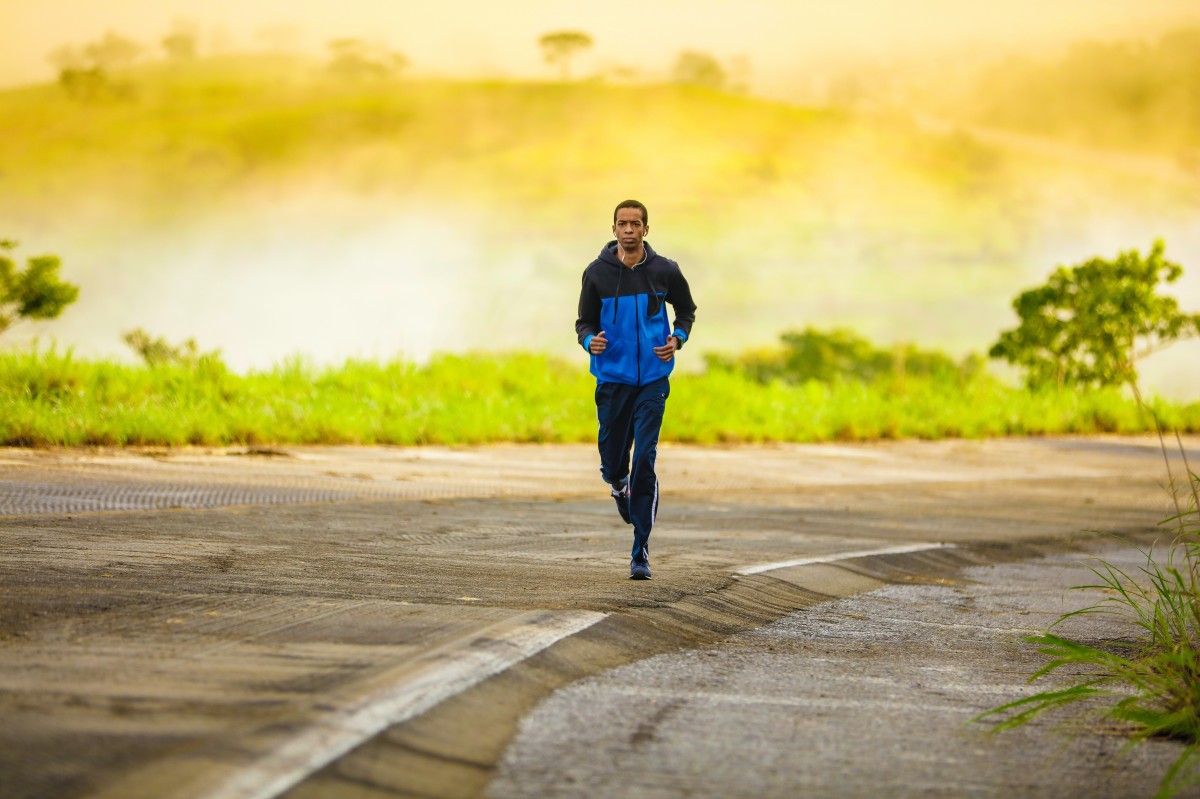In the realm of human experience, few pursuits embody the spirit of perseverance and optimism as gracefully as running. When viewed through the lens of the Bahá’í Faith, running transcends the mere act of physical exertion; it becomes a metaphorical journey toward justice and enlightenment. This narrative not only illustrates the personal quest of a Bahá’í individual but encapsulates the broader essence of Bahá’í teachings regarding social justice and moral rectitude.
At the heart of Bahá’í teachings lies the profound belief in the oneness of humanity. This principle serves as a guiding light, inspiring individuals to look beyond their immediate surroundings and extend their vision toward global unity. Just as a runner is propelled by the aspiration to achieve a personal best, adherents of the Bahá’í Faith are compelled to strive for collective advancement—a race toward a more just and equitable world.
Consider the Bahá’í perspective on justice. It is not merely a passive concept, but rather an active pursuit requiring vigilance and commitment. Within this framework, running acts as a powerful allegory for the struggles faced when advocating for fairness and equality. As one embarks on this endeavor, challenges may arise akin to the fatigue encountered during a marathon. Yet, it is through these trials that the spirit is fortified, reinforcing the belief that alongside personal development, social progress is achievable.
Throughout history, the Bahá’í community has engaged in various acts of service, embodying the principle of justice in tangible ways. Through the lens of a runner, one can envisage a member of this community participating in charity runs or awareness marathons, dedicating their efforts to causes that uplift those marginalized by society. Such actions reveal the potency of combining personal pursuits with altruistic endeavors, effectively bridging the gap between individual fulfillment and collective responsibility.
In addition to social engagement, the narrative of a Bahá’í runner underscores the transformative power of perspective. The act of running encourages introspection, compelling individuals to confront their inner demons and biases. For a Bahá’í, this journey entails a steadfast commitment to examining oneself in the context of a broader societal framework. Do we merely pass by injustice, as a runner might ignore the spectators, or do we engage with those around us, striving for collective upliftment?
This leads to the pivotal concept of unity in diversity, which is paramount within Bahá’í teachings. The rich tapestry of humanity—filled with varying cultures, beliefs, and ethnicities—serves as a reminder that every individual contributes uniquely to the collective narrative. In the running metaphor, each participant plays a vital role, whether sprinting ahead or encouraging others from behind. Recognizing this interconnectedness fosters a profound appreciation for the shared struggles and triumphs of humanity, igniting a profound curiosity for the stories of others.
Moreover, the Bahá’í Faith posits that true justice is inseparable from love—an essential ingredient that fuels the fire of perseverance. A Bahá’í runner, motivated by love for their fellow beings, transcends the boundaries of personal ambition. Love, as articulated in Bahá’í texts, is not merely an abstract emotion but an actionable force that galvanizes individuals to pursue justice. Whether through advocacy, education, or community building, love envelops every aspect of the endeavor, urging runners to advocate for others who are often left unheard.
This conscious intertwining of running with the principles of the Bahá’í Faith elicits a profound shift in perspective. The runner, equipped with the understanding that their path is paved with purpose, becomes a beacon of hope. It is a delicate balance between personal aspirations and societal impact, captivating the imagination and piquing curiosity about what more can be achieved when the individual aligns their goals with the greater good.
Furthermore, the Bahá’í emphasis on the importance of education as a means of empowerment cannot be overlooked. Knowledge equips individuals with the tools necessary to discern right from wrong and articulate their convictions. By integrating this principle into the running narrative, one might envision a Bahá’í organizing community workshops alongside fitness events, educating participants on equality and justice while motivating them to adopt healthy lifestyles. This fusion reflects the holistic approach of the Bahá’í Faith, embracing both physical and spiritual well-being.
Additionally, the community-building aspect of running mirrors the collaborative essence of Bahá’í gatherings. Each finish line crossed represents not just personal achievement, but a shared victory—a testament to the collective journey of finding solutions to societal challenges. In this way, the experience of running transcends the individual, becoming an exercise in unity, cooperation, and collective progress.
Ultimately, the story of a Bahá’í runner serves as a microcosm of broader aspirations for justice and peace. It offers a framework through which individuals can rethink their role in the world, encouraging them to pursue paths that contribute to the flourishing of all. As runners traverse the varied landscapes of life, they discover that the journey itself—infused with compassion, understanding, and a quest for justice—holds the key to unlocking true fulfillment.
In conclusion, running for justice encapsulates a deeply-rooted Bahá’í ethos that emphasizes unity, love, and transformative action. It invites every individual to reflect on their own journey, inspiring curiosity about how they, too, can partake in this noble pursuit. Indeed, the sky is not the limit, but merely the beginning of an expansive horizon wherein justice perpetually beckons, and each step taken reverberates through the fabric of humanity.
